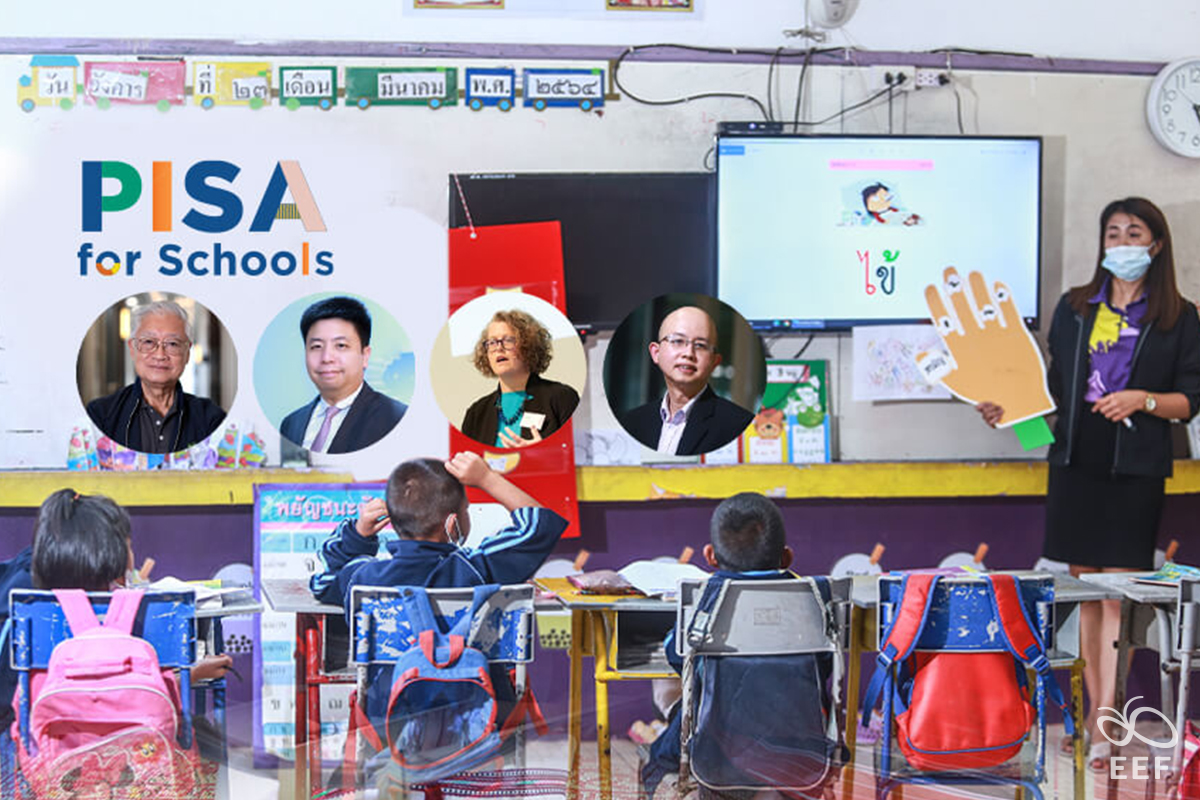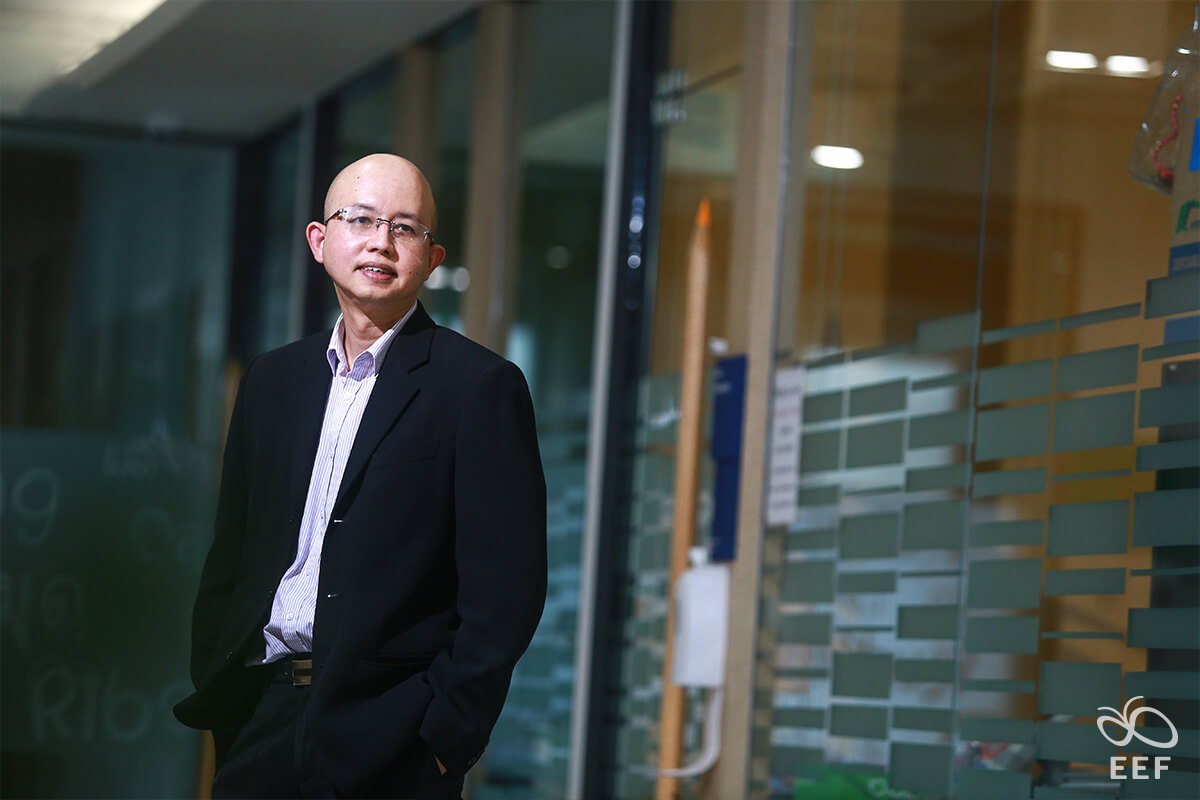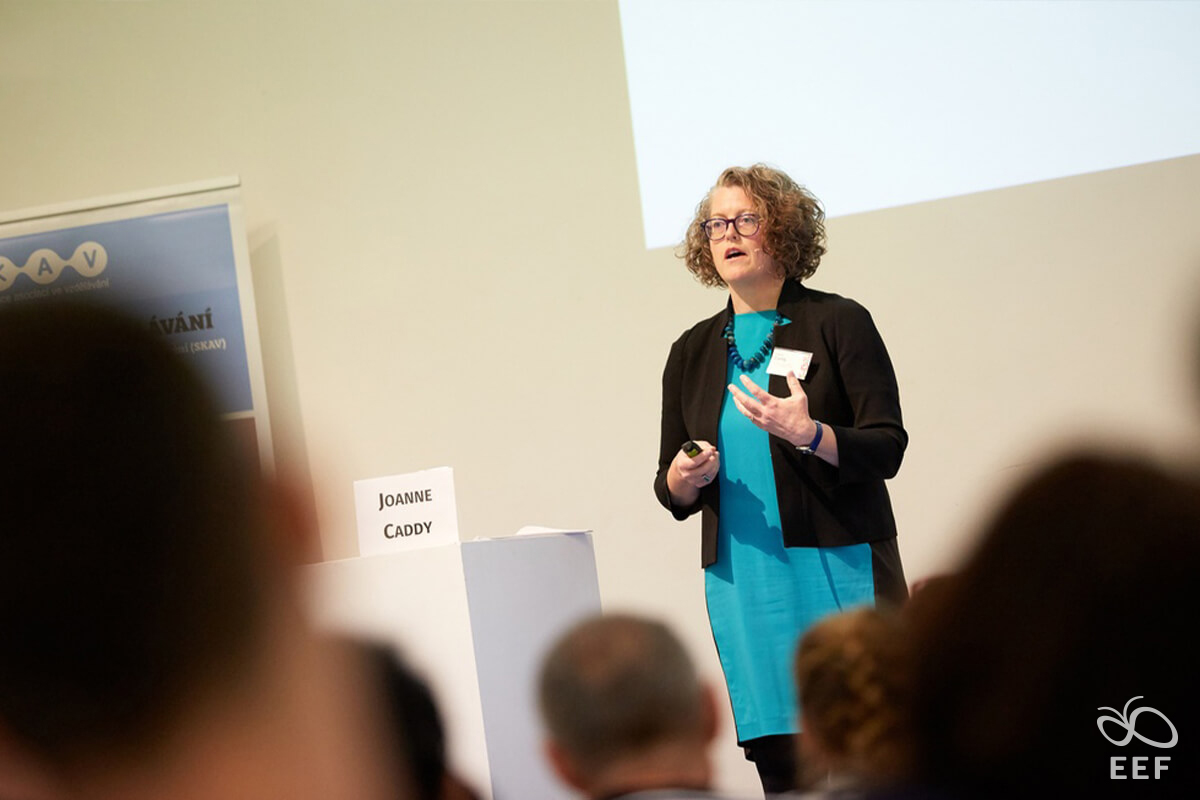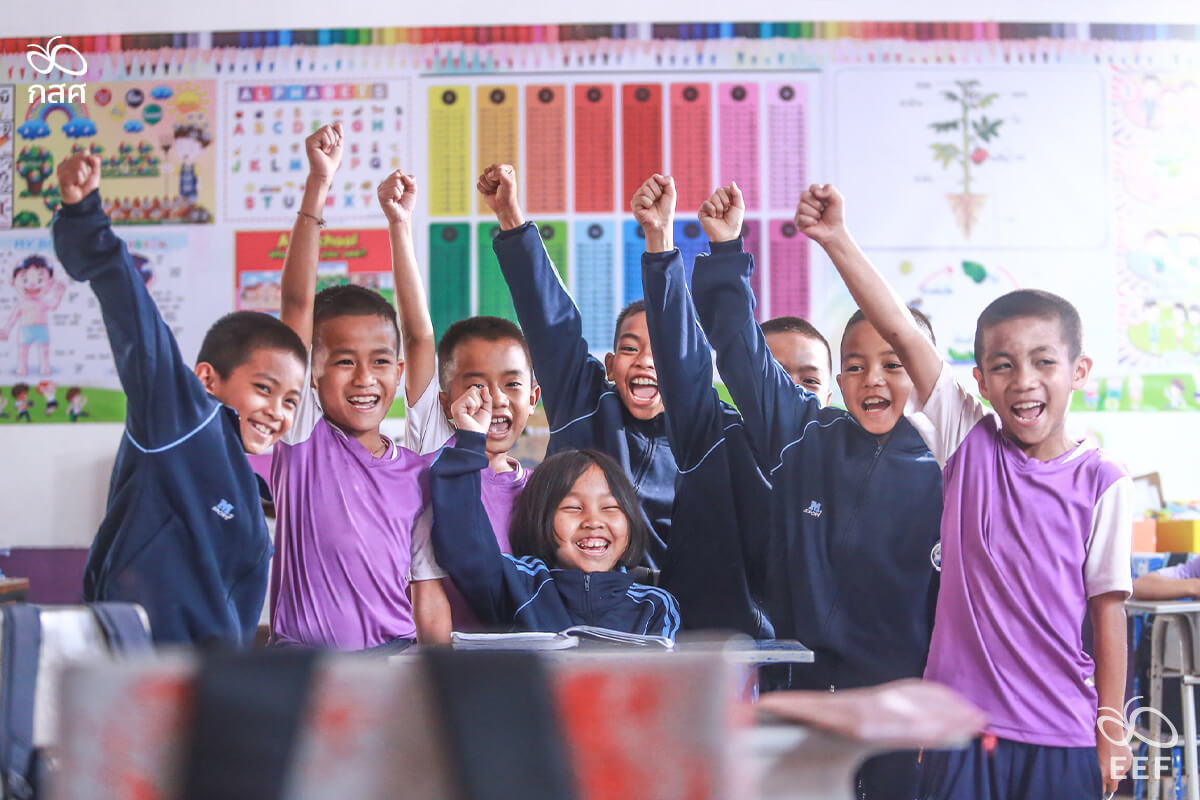
EEF and the OECD revealed PISA for Schools research results, which is the first school-level development assessment in Thailand. The research results indicate that emotional and social skills have a correlation with learning outcomes. It was found that “resilient students” come from poor households, but they can be in the group that scores the highest at 25% because they have high emotional and social skills.
Dr. Kraiyos Patrawat, Manager of the Equitable Education Fund (EEF), said PISA for Schools, or PISA-based Test for Schools (PBTS), is not intended to statistically randomly sample to measure the level of success of national or international education like the PISA exam, which is held every three years. PISA for Schools is an assessment tool for classroom and school development, and the results can be expanded to the development of other schools with similar environments, including leading to ongoing research for results in changing the education policy of the country. This is an important opportunity where the Organization for Economic Cooperation and Development (OECD) has invited Thailand to be one of 15 countries around the world to participate in research and development of this PISA-based Test for Schools tool to be applied in the future developing assessment tools for classroom development to enable educational institutions to develop themselves continuously with such tools.

Dr. Kraiyos said that EEF tested PISA for Schools in 66 schools covering 2,459 students. We found that resilient students, who are students from the lowest-income 25% of the country’s poor households, were able to score in the group with the top 25% of the country’s scores. It was found that some of these students have social and emotional skills at the same high level. When analyzing using the PISA for Schools’ tool, it was found that when other factors were controlled to be constant, the factors that made resilient students have better performance than their peers and different from students from general poor households were a high level of emotional and social skills. In this regard, the role of parents and schools has a significant effect in helping to increase the level of emotional and social skills of these children.
Dr. Poomsarun Thongliamnak, Acting Director of the Equitable Education Research Institute (EEFI), said “From the PISA for Schools test results, it was discovered that SEL was correlated with scores in science, math, and reading. Students with good self-control, curiosity, or compassion for others will have good academic results. The findings here led us to the discovery of ‘resilient children,’ or children with a wealth status in the bottom 25% of the test group but able to score as high as the top 25% of the test group. This will serve as a model for us to approach the development of other children as a whole.”

“A total of 76 students tested were the highest-scoring students in each subject group, and five students had the highest scores in the three subjects, all of them were resilient children from the poorest families funded by the Equitable Scholarships.” PISA for Schools disclosed the background that resilient students have a number of outstanding social-emotional skills, such as self-control, assertiveness, and higher social skills than any other group of children. They also have curiosity and empathy at a fairly high level, even though they are still inferior to the children from the richest families.”
Dr. Poomsarun also emphasized another matter that was discovered is that this resilient child group receives support from their parents in many aspects, such as boosting their confidence, education, and fighting against hardships. It shows that although they are from the poorest families or their parents have a low level of education, if they receive support in various areas, especially education and encouragement from parents, they can go on to achieve academic success.
“The more parents support education, the more children will be curious to learn, optimistic, confident in learning, and it helps develop and promote children’s emotional and social skills. When looking at school factors, we found that the good atmosphere in the classroom, orderly conditions, no disturbing behavior during teaching, and openness of opinion are factors that make children develop emotional and social skills. If the school has high bullying problems, children’s emotional and social skills will be negatively impacted.”

Professor Wijan Panich, M.D., Advisor to the EEF Executive Committee, said that this project will lead to something more valuable than research. It will lead to the creation of all Thai children being resilient students. The results of PISA for Schools will create high-quality classrooms to enhance the performance of all children. It is important that teachers must help develop students to have four important elements: values, attitudes, skills, and harmoniously blended knowledge; and there must be an in-depth learning process or active learning in the classroom and in the school. Nowadays, Thai teachers still lack a tool that will be used to assess and improve their duties and teaching methods. In the future, if we can develop an assessment tool like PISA for each school to assess itself, it will improve and develop the learning cycle, and the quality of our education will continue to improve.


